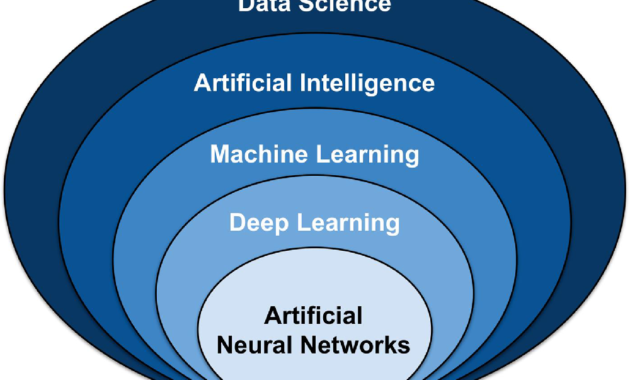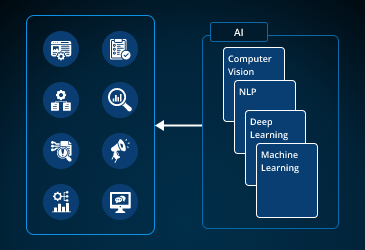Artificial Intelligence Models Artificial Intelligence (AI) is no longer just a futuristic concept—it’s a fundamental part of modern business strategy. From enhancing customer experiences to optimizing operations, AI models are reshaping how organizations operate across industries. As machine learning algorithms and deep learning models continue to evolve, businesses are gaining powerful tools to make smarter decisions, reduce costs, and deliver greater value to customers.
In this article, we’ll explore how AI models are transforming the business landscape, key types of AI models, and real-world applications driving innovation.
Understanding AI Models in Business

What Are AI Models?
AI models are systems or algorithms trained to perform specific tasks by learning patterns from data. These models can predict outcomes, automate processes, and offer insights that support strategic decision-making.
Types of AI Models Used in Business
- Machine Learning (ML) Models: These learn from historical data to predict future outcomes.
- Deep Learning Models: These mimic the human brain using neural networks, useful for image and speech recognition.
- Natural Language Processing (NLP) Models: Enable machines to understand and generate human language.
- Reinforcement Learning Models: Learn by trial and error, commonly used in robotics and automation.
Key Areas Where AI Models Are Transforming Business
Customer Experience & Personalization
AI-Powered Chatbots & Virtual Assistants

Businesses are using AI chatbots to provide 24/7 customer support, answer FAQs, and handle complaints—reducing human workload and improving customer satisfaction.
Personalized Marketing Campaigns
AI models analyze customer behavior and preferences to create hyper-targeted ads and email campaigns, improving engagement and conversion rates.
Sales and Revenue Forecasting
Predictive Analytics
AI models can analyze historical sales data and market trends to forecast future demand and revenue. This helps businesses adjust strategies in real time.
Lead Scoring
AI helps sales teams prioritize leads based on behavior patterns, boosting efficiency and sales performance.
Supply Chain Optimization

Inventory Management
AI algorithms can predict demand, manage inventory levels, and automate reordering processes to avoid overstocking or stockouts.
Logistics & Delivery
AI models optimize delivery routes, reduce fuel consumption, and estimate accurate delivery times.
Human Resources and Talent Management
Resume Screening
AI can automate the screening process by analyzing resumes and ranking candidates based on predefined job criteria.
Employee Retention
AI models help predict employee churn by analyzing workplace data and identifying warning signs.
Fraud Detection and Cybersecurity
Anomaly Detection Models
AI is instrumental in detecting unusual patterns in real-time to prevent fraud and security breaches, especially in finance and e-commerce.
Risk Scoring
AI can assign risk levels to transactions or user behaviors to help companies act quickly against threats.
Financial Management and Accounting
Automated Bookkeeping
AI-powered tools automate invoice generation, expense tracking, and tax reporting with high accuracy.
Financial Forecasting
AI models assist in budgeting, cash flow analysis, and long-term financial planning.
Industry-Specific Use Cases

Retail
- Personalized shopping experiences using AI recommendation engines
- Smart shelves using computer vision to track inventory
- Virtual try-on features with AI-driven AR tools
Healthcare
- AI models diagnose diseases using medical imaging
- Predictive models for patient outcomes and treatment optimization
- Chatbots for appointment scheduling and basic consultation
Manufacturing
- Predictive maintenance to avoid machinery failure
- Quality control using AI-powered image analysis
- Real-time supply chain adjustments based on AI predictions
Finance
- Robo-advisors for investment management
- AI-driven credit scoring for loan approvals
- Real-time fraud monitoring in banking transactions
Benefits of Using AI Models in Business
Improved Efficiency
Automation of repetitive tasks allows employees to focus on strategic work, increasing productivity.
Cost Reduction
AI minimizes human error, reduces operational costs, and eliminates inefficiencies.
Better Decision-Making
Data-driven insights help leaders make informed, accurate, and faster business decisions.
Enhanced Customer Satisfaction
AI enables personalized experiences and faster support, leading to higher customer retention.
Challenges of Implementing AI in Business
Data Privacy and Ethics
Ensuring that customer data is handled responsibly is critical. Businesses must comply with laws like GDPR and CCPA.
High Initial Investment
Developing or integrating AI models can be expensive. ROI may take time depending on the complexity of implementation.
Skills Gap
Lack of in-house AI expertise can slow down adoption. Training and hiring qualified AI professionals is essential.
Model Bias and Accuracy
AI models can inherit biases from the data they’re trained on. Regular audits are necessary to ensure fairness and accuracy.
How Businesses Can Get Started with AI
Identify Business Challenges
Start by identifying pain points where AI can add value, such as customer service, operations, or sales forecasting.
Choose the Right AI Tools
Leverage platforms like Google Cloud AI, Microsoft Azure AI, or IBM Watson to get started with ready-to-use AI models.
Collect and Clean Data
High-quality data is essential for effective AI model training. Focus on collecting relevant, clean, and structured data.
Pilot and Scale
Test AI solutions on a small scale, measure the results, and gradually expand the implementation based on performance.
Future Trends in AI for Business
Generative AI in Marketing
AI models like GPT-4 and DALL·E are now creating marketing content, product descriptions, and social media posts.
AI-Powered Decision Engines
AI will increasingly drive autonomous decision-making in areas like pricing, procurement, and hiring.
Hyperautomation
Combining AI with robotic process automation (RPA) to automate end-to-end business processes.
AI-Driven Sustainability
AI will help businesses reduce their environmental impact by optimizing energy use, waste management, and supply chain emissions.
Also Read : How To Start A Successful Business From Scratch
Conclusion
Artificial intelligence models are no longer a competitive advantage—they’re a business necessity. From enhancing customer interactions and forecasting demand to managing supply chains and detecting fraud, AI is revolutionizing how modern businesses operate. By adopting the right AI models and tools, companies can drive innovation, reduce costs, and make smarter decisions. The future of business belongs to those who are willing to embrace AI—not just as a tool, but as a transformative strategy.
FAQs
What are AI models in business?
AI models are algorithms trained to perform tasks like predicting outcomes, recognizing patterns, or automating decisions based on business data.
How do AI models benefit small businesses?
They automate routine tasks, improve marketing, enhance customer service, and support data-driven decision-making, even for small teams.
Are AI models expensive to implement?
Some advanced models can be costly, but cloud-based AI services and pre-trained models make it more accessible to small and medium businesses.
What industries benefit most from AI?
Retail, healthcare, finance, manufacturing, and logistics are among the industries seeing the most transformation from AI adoption.
Is AI replacing human jobs in business?
AI is automating repetitive tasks but also creating new roles focused on AI management, data analysis, and strategic decision-making.




